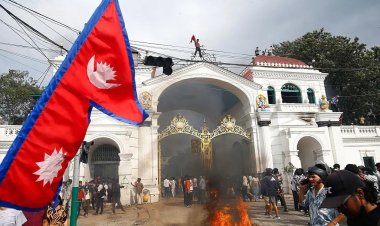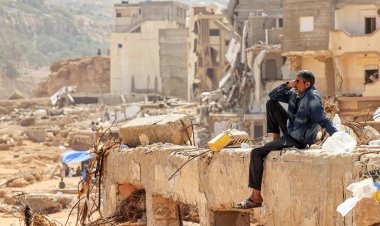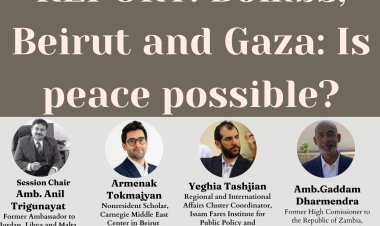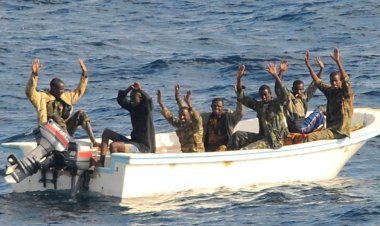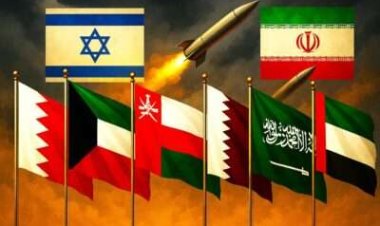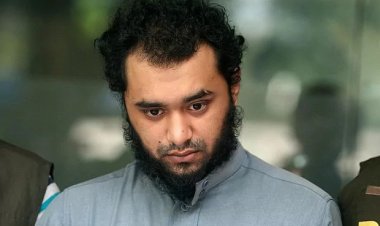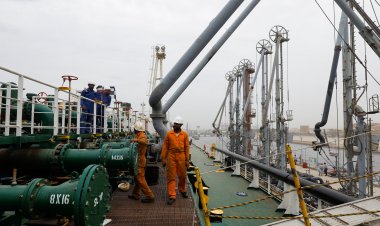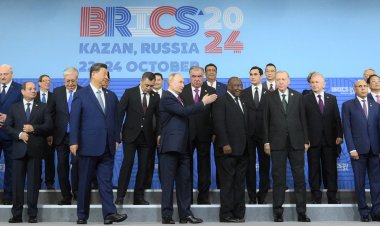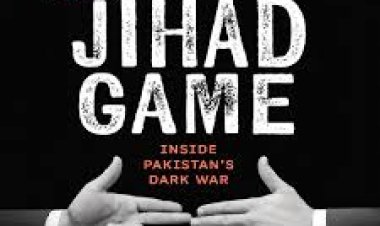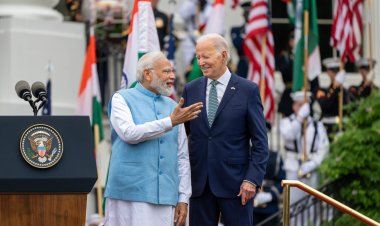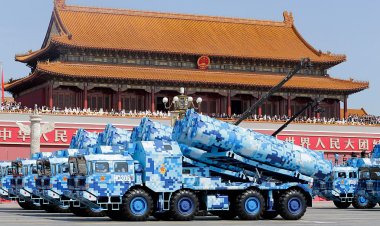Why Israel's war with Iran has International Significance

Analysis
By Efraim Inbar
The US has joined the successful Israeli air campaign against Iran’s nuclear and long-range missile infrastructure by bombing the installations at Fordow, Natanz, and Isfahan. While the war is not over, its significance in the international arena is visible already.
The US has been the beneficiary of Operation Rising Lion. The general perception is that Washington allowed Israel, its ally, to carry out a military campaign against Iran, which has challenged American dominance for several decades, with incessant calls for “Death to America.”
The US provided Israel with arms and a diplomatic shield. Washington initially participated in Israel’s air defense against Iranian missiles and armed UAVs, sending at a later stage its B-2s to complete the destruction of key Iranian installations. Israel’s feats weakened an anti-Western actor and strengthened the American position in the world.
Indeed, President Donald Trump decided to capitalize on the Israeli successes, showing that America is great again.The airstrikes on Iran – a member of the anti-American axis – reflect badly on China and Russia, Iran’s allies. Beijing and Moscow refrained from intervening, leaving Iran alone to carry the brunt of the assault.
If the regime collapses, doubts about Russia’s and China’s reliability as a strategic partner will increase, particularly in the Third World. Moreover, in such a scenario, Russia’s decades-long investment in the country will go down the drain, while China will lose a friendly state in the Middle East and a source of cheap energy.
Iran’s nuclear project also challenged the NPT regime, which has been a constant American foreign policy goal. Tehran enriched uranium, coming close to weapons-grade material, and worked covertly on weaponization. The IAEA, which swallowed Iranian lies for decades, finally found Iran in violation of its NPT commitments.
The destruction of the Iranian nuclear infrastructure and the decapitation of the nuclear scientific personnel by Israel strengthens the NPT regime and dissuades potential proliferators in the Middle East from trying to emulate Iran, such as Turkey, Saudi Arabia, or Egypt.
The American bombing – the first time the US used force in a counterproliferation mode – serves as a potent warning. A nuclear Iran could have elicited similar ambitions in Central Asia and destabilized the nuclear balance in the Indian subcontinent and even the Chinese nuclear posture.
This time, the American support and Iran’s genocidal intentions led to less criticism of Israel, particularly by democratic states, than its previous preventive strikes in Iraq (1981) and in Syria (2007) against emerging nuclear threats. In 2025, the US issued a green light, the G7 supported Israel’s right to self-defense, and German Chancellor Friedrich Merz praised Israel for doing the “dirty work for us” in Iran.
We can detect a change in the international legitimacy awarded to military action to prevent proliferation, which could affect the calculus of would-be proliferators. After all, it is difficult to hide a nuclear weapon program or make it invulnerable to preventive attacks, which receive greater legitimacy.
This new tendency is at the expense of the blind belief in the supremacy of diplomacy and the widespread aversion to war. Of course, the Russian invasion of Ukraine in 2022 contributed to the awakening on the part of the West and to its reassessment of the utility of using military force.
Iran's current predicament further weakens the anti-American Shi’ite Crescent (King Abdullah’s expression) – a process started by Israel after the Hamas October 2023 attacks. This affects regions beyond the Middle East, as Iran’s tentacles established dormant terrorist rings in Shi’ite diasporas in Latin and North America, as well as in Western Europe.
New radical Sunni axis on the rise
Yet, the defeats of Iran and its proxies create a vacuum that seems to be filled by the rise of a new radical Sunni axis embodied in a Qatar-backed Turkey. This is a dangerous development. Turkey’s president, Recep Tayyip Erdogan, and much of his coterie are a Turkish incarnation of the Muslim Brotherhood (MB), a radical anti-Western movement. Islamic fervor is mixed with longing for Ottoman grandeur.
Turkey’s military is the second largest in NATO, and Turks are ready to fight. Erdogan-led Turkey also has nuclear ambitions. The US has traditionally seen Turkey as an important ally, while Trump views Erdogan as a strong leader and friend, overlooking Turkish actions and excesses that deviate from American preferences.
Turkey’s capabilities and ambitions are enhanced by the financial largesse of Qatar, which is a long-standing backer of Muslim Brotherhood activities worldwide. It is the principal global propagandist of Islamism through its media powerhouse, Al Jazeera.
In contrast to Iran, Qatar benefits from Washington’s incredible blindness to its support for Islamic terrorists and anti-Western endeavors. Ironically, American current dispositions toward Qatar and Turkey are facilitating the emergence of the anti-American Sunni radical group.
The decline in Iranian power does not herald a new, more peaceful Middle East, which remains a conflict-ridden region. Moreover, many states have a weak central authority unable to prevent the existence of armed militias. The Middle East will continue to be a source of Islamist terrorism and violent crises. Use of force still is part and parcel of the rules of the game for all Middle Eastern actors.
The importance of airpower (expensive and labour-intensive) versus a much cheaper missile-based force has been a subject of debate in many strategic fora around the world. The Israeli air campaign in Iran clearly shows the advantages of an effective air force. Missiles are important on the battlefield but are no substitute for manned or unmanned aircraft.
With the spread of missile technology and the greater danger of destruction from far away, Israel’s enormous investment in building adequate anti-missile defense systems was a lesson for threatened states. Similarly, the need for passive defensive measures and proper education of the population for missile attacks was proven.
The US, under Trump, has signaled that it is a great power still involved in international affairs. As for Israel, its audacious attack on Iran eliminated an existential threat and restored its deterrence that was greatly eroded by the October 7 events. Moreover, Israel has kept its monopoly over nuclear weapons in the Middle East.
Disclaimer: This paper is the author's individual scholastic contribution and does not necessarily reflect the organization's viewpoint. The article was first published in Jerusalem Post
The writer is a senior researcher at the Jerusalem Institute for Strategy and Security (JISS) and chair of the program in Strategy, Diplomacy, and Security at Shalem College.

